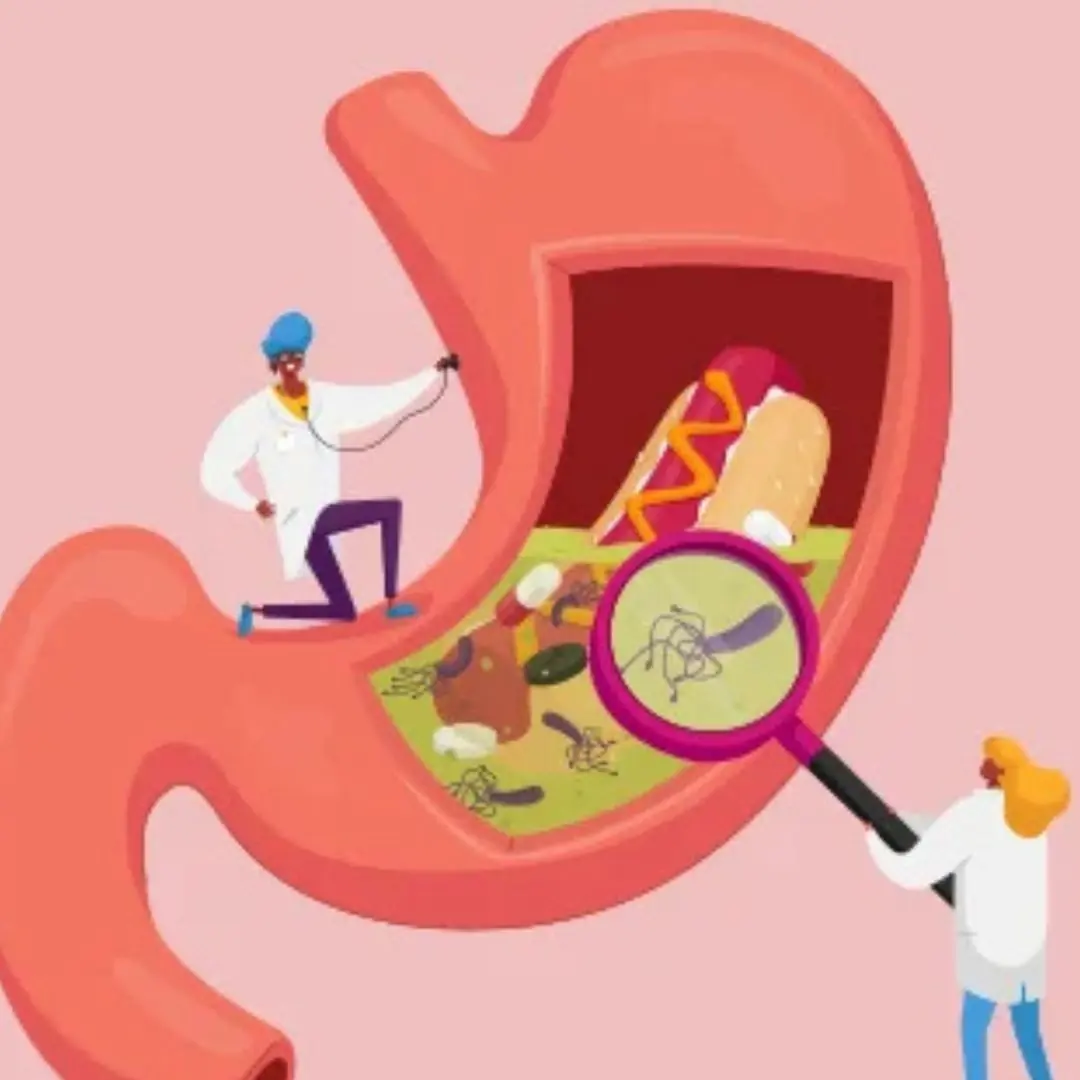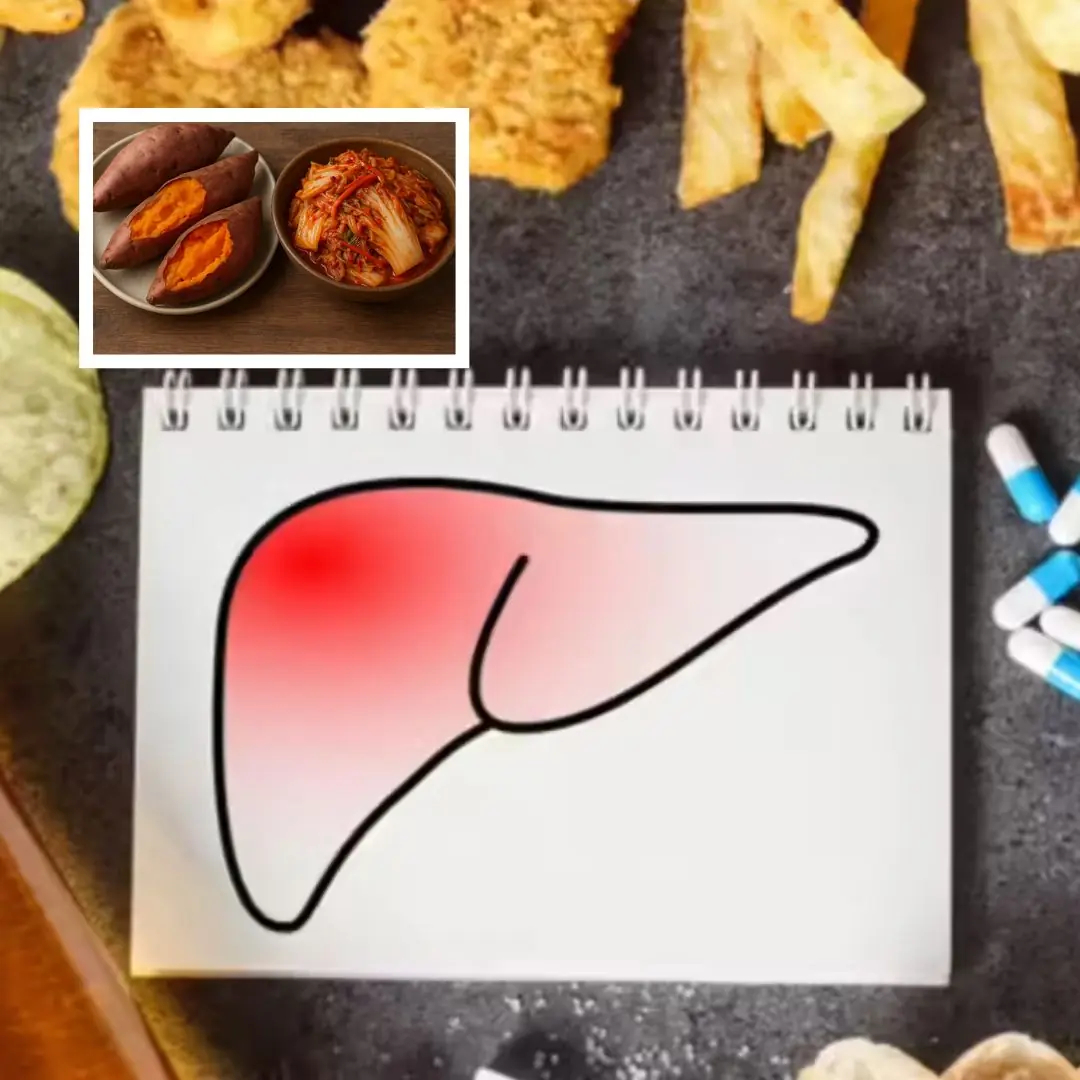
A man di.es from diabetes: 6 breakfast foods you should never eat

A man di.es from diabetes: 6 breakfast foods you should never eat
What seems like a “harmless” breakfast could secretly be causing your blood sugar to spike if you keep eating these six types of foods.
Mr. Li, 31, from China, worked in a high-stress environment with irregular eating habits and a love for fast food. Every morning, he ordered a hamburger, fried chicken, and a large soda — a routine that seemed harmless but followed him for years. To his colleagues, he was young, energetic, and full of life. But no one expected that this very breakfast habit would silently push him toward death.
One morning, while at work, Mr. Li suddenly collapsed. When rushed to the hospital, doctors found his blood sugar levels were several times higher than normal. He was diagnosed with hyperosmolar hyperglycemic coma — a severe and often fatal complication of diabetes. Despite the medical team’s best efforts, he could not be saved.
After the tragic case, the doctor sighed: “This illness came entirely from his eating habits. Having breakfast like that every day is like slowly harming yourself.”
According to Dr. Chu Ding, Deputy Director of the Endocrinology Department at Xiehe Hospital (Beijing), the process from being healthy to developing diabetes typically happens in three stages:
-
The body develops insulin resistance, causing cells to no longer “respond” properly to insulin, making it harder to lower blood sugar.
-
Beta cells in the pancreas begin to weaken, reducing insulin secretion.
-
Once the beta cells are severely damaged, the body can no longer produce enough insulin — and diabetes officially sets in.
Alarmingly, an improper breakfast is one of the fastest ways to cause blood sugar spikes.
Nutritionist Guo Yupei (People’s Hospital of Jiyuan City, Henan, China) listed six common breakfast types that people with diabetes or high risk of diabetes should absolutely avoid:
-
Refined flour foods (buns, pastries): easy to digest but cause a rapid rise in blood sugar.
-
Overcooked white porridge: rice already has a high glycemic index, and prolonged boiling turns starch into dextrin, leading to a sharp post-meal sugar surge.
-
Breakfasts lacking vegetables: without fiber, the body absorbs sugar more quickly, raising blood glucose after meals.
-
Fried foods (fried dough, fried buns, pancakes): high in oil and calories, making blood sugar harder to control.
-
Noodle soups or rice noodles rich in starch: though tasty, they act like “calorie bombs” that spike blood sugar within minutes.
-
Overly soft starchy foods: lead to less chewing and faster swallowing, causing sugar to flood the bloodstream rapidly and fluctuate sharply.
How should diabetics eat breakfast to keep blood sugar stable?
Breakfast is the most important meal of the day — but eating it right is the key to protecting blood sugar.
Experts recommend increasing the intake of whole grains such as oats, brown rice, and whole-grain bread because they are rich in fiber, which slows starch absorption and prevents sudden sugar spikes.
Additionally, the order of eating matters:
-
Eat vegetables first to add fiber and create a sense of fullness.
-
Then eat protein-rich foods like eggs or tofu.
-
Finish with carbohydrates, which helps stabilize post-meal blood sugar.
Professor Li Quanzhong, Head of the Endocrinology and Metabolism Department at Zhengzhou West District Traditional Chinese Medicine Hospital (Henan, China), also advised following the “2 Dos and 3 Don’ts” rule for mornings:
2 Dos:
-
Drink warm water after waking up to rehydrate and stimulate metabolism.
-
Do light exercise such as stretching or walking to burn glucose and increase insulin sensitivity.
3 Don’ts:
-
Don’t skip breakfast, as it may cause hypoglycemia, fatigue, and poor sugar control.
-
Don’t exercise too intensely right after waking up, since it can cause blood sugar to drop too low.
-
Don’t start your day stressed or angry, because adrenaline can raise blood sugar levels.
6 high-risk groups for diabetes and 5 golden habits to prevent it
According to the Chinese Journal of Epidemiology, the following six groups are at high risk for diabetes:
-
People who are overweight, especially with abdominal fat.
-
Those with a family history of diabetes.
-
People over 45 years old, as metabolism declines.
-
Individuals with high blood pressure or high cholesterol.
-
Women with a history of gestational diabetes.
-
People who sit too much or lead sedentary lifestyles.
For these groups, doctors recommend maintaining five healthy habits to effectively control blood sugar:
-
Exercise regularly: at least 150 minutes per week with moderate activities like brisk walking, swimming, or cycling.
-
Eat a balanced diet: reduce sugar, fat, and refined starch; eat more vegetables and quality protein.
-
Monitor blood sugar regularly to detect abnormalities early.
-
Get enough sleep: 7–8 hours each night to help insulin function properly.
-
Stay relaxed: chronic stress can also elevate blood sugar levels.
News in the same category


A 12-year-old boy loses 12 teeth at once due to a common habit among children

Warning: A Common Daily Habit May Be “Inviting” Liver Can.cer — Many People Know It, Yet Still Do It

6 foods that clean the intestines naturally when eaten on an empty stomach

Poucas pessoas reconhecem os sinais de alerta de problemas de circulação que podem surgir nos pés e nas pernas durante a noite

Don’t Ignore These Silent Signs of Oral Cancer

Pain on the left side of your body: What could it mean?

Your feet can reveal important signs about your circulation and metabolic health

These are the consequences of eating....

5 amazing benefits of drinking warm water with honey

Scientifically Supported Food Combinations That May Benefit Liver Health

6 Types of Foods That Negatively Affect Your Thyroid — What to Limit or Avoid

The most powerful herb that removes parasites, urinary tract infections and herpes

Warning: Pain in These Three Areas May Be an Early Sign of Lung Can.cer

Vegetables listed as ca:ncer - causing that many people still eat, should be stopped immediately

Swollen Feet? Don’t Ignore This Clear Red Flag — Here’s What It Really Means

Why You Keep Waking Up Between 3 and 4 AM - 4 Health Issues Your Body May Be Signaling

Indoor Air Quality: 6 Common Household Items That May Affect Your Lungs — And How to Use Them Safely

5 common mistakes when using yogurt that can be harmful to your health that you may not know

Scientists May Have Actually Found One Of The Causes Of Autism
News Post

Age Spots and Selenium: How This Powerful Mineral Can Help Fight Sun Damage Naturally

A 12-year-old boy loses 12 teeth at once due to a common habit among children

Warning: A Common Daily Habit May Be “Inviting” Liver Can.cer — Many People Know It, Yet Still Do It

6 foods that clean the intestines naturally when eaten on an empty stomach

Don’t Ignore These Silent Signs of Oral Cancer

Pain on the left side of your body: What could it mean?

Setting Boundaries: A Family Story

Your feet can reveal important signs about your circulation and metabolic health

How a Salute Changed My Family’s Perception of Me

These are the consequences of eating....

5 amazing benefits of drinking warm water with honey

Scientifically Supported Food Combinations That May Benefit Liver Health

Classic Cherry Pie

Hawaiian Pineapple Glazed Ribs

Honey Garlic Roasted Chicken Thighs with Potatoes & Carrots

6 Types of Foods That Negatively Affect Your Thyroid — What to Limit or Avoid

The most powerful herb that removes parasites, urinary tract infections and herpes

Tips to Help Hair Grow Faster and Thicker: A Complete Guide for Strong, Healthy Hair

If You Notice These Two Little Holes on Your Back, It Means You’re Not… Tap to Discover
